Scientists
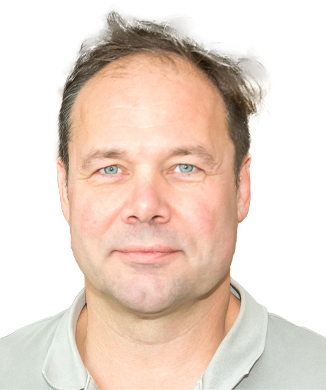
Christian Henning
Lead Scientist
Christian Henning, Lead Scientist

Dr. Christian Henning, is lead scientist at Akademiya2063. He is currently on leave as a professor and chair of agricultural economics, University of Kiel (Germany), where he taught agricultural economics and computational political economy since 2000. His main areas of specialization are applied political economy and applied economic modelling of agricultural and development policies. He has over 30 years of experience, as scientist and consultant, in developing and applying innovative methods for modelling and evaluating policy processes especially in African and European countries, where he worked with leading international research institutions and universities including University of Chicago (James Coleman, Department of Sociology), Stanford University (Barry Weingast, Department of Political Science), MIT (Prof. Ezra Zuckerman, Sloan School of Management), IFPRI, the FAO, the World Bank and the EU.
Dr. Christian Henning studied economics, agricultural economics, sociology, political science and mathematics and earned PhD’s in agricultural economics, in economics and in political science.
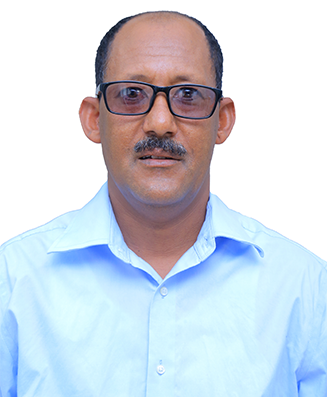
Getaw
Tadesse
Director, Operational Support
Getaw Tadesse, Director, Operational Support

Getaw Tadesse holds a Ph.D. in Agricultural Economics from the Norwegian University of Life Sciences (Norway). He has more than 10 years of experience in agricultural development and food security research and project management.
Before joining AKADEMIYA2063, he worked as a Research Fellow at the International Food Policy Research Institute (IFPRI), and as a Postdoctoral Researcher at the Center for Development Research (ZEF), University of Bonn, Germany. His research seeks to understand (a) the dynamics of food prices and trades at local, national, regional and global markets; (b) the role of the private sector and civil society in African agri-food system and public supports needed to enhance their competitiveness; and (c) the impacts of policies and programs on food and nutrition security, commercialization of smallholders, competitiveness of private enterprises and food markets.
His research has a geographical focus in Africa with extensive experience in Ethiopian agricultural development and food systems. He is very conversant on household and plot level data collection and econometric methods.
He has published over 20 articles in professional journals and books listed in Google scholar with citations (782) and h-index (10). Furthermore, he has contributed to enhancing the capacity of African experts and policymakers on national agricultural investment planning, assessment of program and policy opportunities and the use of evidence-based planning and implementation of food security and employment generation programs.
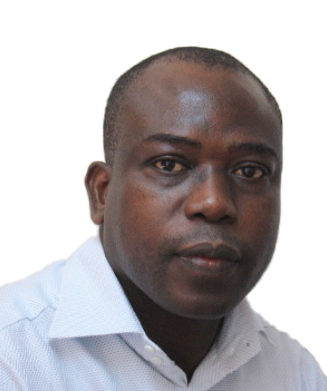
Sunday Odjo
Deputy Director, Operational Support
Sunday Odjo, Deputy Director, Operational Support

Sunday Pierre Odjo is Deputy Director of the Department of Operational Support. He is an agricultural economist with research interest in farm household modeling and trade and agricultural policy analysis.
Before transitioning over to AKADEMIYA2063, he served as a Senior Research Coordinator in the Africa Division of the International Food Policy Research Institute (IFPRI). Over the past ten years, he has supported West African Authorities for the development of national agricultural investment plans as part of IFPRI’s scientific and technical assistance to the implementation of the Comprehensive Africa Agricultural Development Program (CAADP).
He recently led several survey projects in Niger as part of a collaborative research work between IFPRI and the Millennium Challenge Corporation (MCC). Prior to joining IFPRI, he served as an Agricultural and Trade Policy Advisor in the Secretariat of the Conference of Ministers of Agriculture of West and Central Africa, facilitating country-level implementation of CAADP Framework for Improving Rural Infrastructure and Trade-Related Capacities for Market Access.
He holds a PhD in Rural Economics from the Catholic University of Louvain-la-Neuve, Belgium and an MA in Geography and Land Use Planning from the National University of Benin.
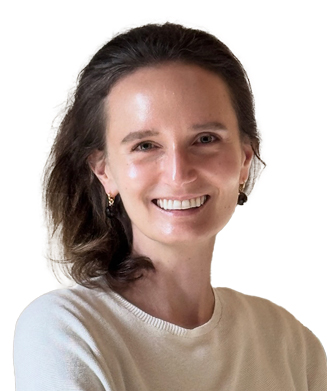
Katrin
Glatzel
Director for Global Strategy and Programs
Katrin Glatzel, Director for Global Strategy and Programs

Katrin Glatzel is a public policy specialist working at the intersection of research, policy, and governance, with a focus on agrifood systems transformation in Africa. She holds a PhD in Environmental Research from Imperial College London, an MSc in Public Management and Governance from the London School of Economics and Political Science, and a BA in European Studies from Maastricht University in the Netherlands.
She currently serves as Director for Global Strategy and Programs at AKADEMIYA2063 and is based in Kigali, Rwanda. Before that, she was a Senior Researcher and Program Leader at the University of Bonn’s Center for Development Research (ZEF) in Germany, where she implemented the Agrifood Systems-Transformative Research Policy project. Her interests span agrifood systems governance and public policy, Africa-Europe relations and partnerships, the climate-agriculture-nutrition nexus, and the bioeconomy.
She previously served as the Director of Policy Innovation at AKADEMIYA2063 in Dakar, Senegal, and was in charge of the organization’s research activities around governance and public policy to accelerate food systems transformation and inclusive economic growth in Africa. She oversaw the implementation of the Digitally Enabled Resilience and Nutrition Policy Innovations (DERPIn) project and served as the program head of the Malabo Montpellier Panel for over ten years. She also served as a Research Fellow at the International Food Policy Research Institute (IFPRI) and as a Policy and Research Officer at Imperial College London.
She is a Board Member of the African Agricultural Technology Foundation (AATF); a Member of the Scientific Advisory Group to the GIZ Global Program on Food Systems Transformation; a Visiting Researcher at Imperial College London; and an Extraordinary Lecturer at the University of Pretoria’s Department of Agricultural Economics, Extension and Rural Development.

Racine
Ly
Director, Data Management, Digital Products and Technology
Racine Ly, Director, Data Management, Digital Products and Technology

Prior to joining AKADEMIYA2063 as Director of Data Management, Digital Products and Technology, Racine worked as a ReSAKSS Research Coordinator at the International Food Policy Research Institute (IFPRI). His primary areas of research are in Predictive Modeling, Machine Learning techniques applied to geospatial data and crop type classification with unsupervised learning techniques. Racine believes in harnessing technology and digital tools to impact policy and decision-making processes in the agricultural sector.
Racine is a 2018 Obama Leaders Africa program fellow. He holds a Master's degree in Mathematical Modeling and Multi-Scale Simulation through a joint degree program between the Ecole Nationale des Ponts et Chaussées and the Paris-Est Marne-La-Vallée University. He subsequently earned a doctoral degree in the field of Engineering Sciences applied to Spatial Transport Systems, through the French Space Agency (Centre National d'Etudes Spatiales) and the University of Bordeaux.
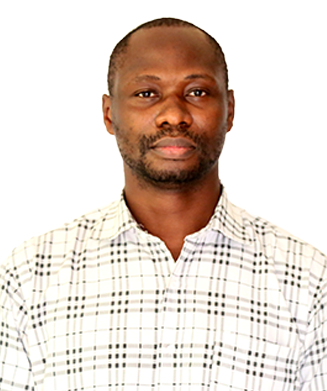
Mahamadou Tankari
Mahamadou Tankari, Deputy Director, Capacity and Deployment

Dr. Mahamadou Tankari is the Deputy Director of the Department of Capacity and Deployment at AKADEMIYA2063. Previously, Mahamadou worked at the International Food Policy Research Institute (IFPRI) in Senegal where he carried out policy-oriented research.
His research interests cover agricultural economics, health economics, food security and poverty issues. He has authored and co-authored many published articles in peer-reviewed journals including Food security, Journal of Development Studies, Economic Modelling, Agricultural Economics and Journal of African Economies.
Mahamadou received his PhD in Economics from the University of Pau, France. He holds a Master’s degree in Statistics and Economics from ENSAE Senegal and a Masters in Mathematics from the University 08 Mai 1945, Algeria.
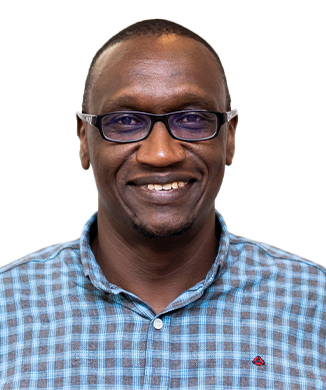
Paul Maina Guthiga
Paul Maina Guthiga, Senior Scientist
Department of Knowledge Systems

Dr Paul Guthiga is a Senior Scientist at AKADEMIYA2063. He is an Agricultural Economist with over 17 years’ experience in agricultural research and policy engagement in the Eastern Africa region. For the past 11 years, Paul has been undertaking strategic policy analysis, monitoring and evaluation and capacity building in supporting the implementation of the Comprehensive African Agricultural Development Program (CAADP) in Eastern and Central Africa under the ReSAKSS program.
His areas of research interest include regional trade, impact evaluation, natural resource management, climate change, price analysis among others. He has published his work in various peer reviewed journals and book Chapters.
Paul is a native of Kenya and holds a PhD in Agricultural Economics from the University of Bonn, Germany (2007). He obtained his B.Sc. (Agriculture) and M.Sc. (Agricultural Economics) degrees both from the University of Nairobi, Kenya.
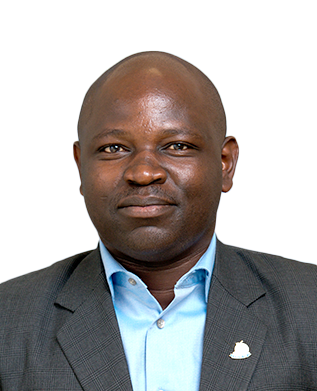
Seraphin Niyonsenga
Seraphin Niyonsenga, Senior Scientist
Department of Policy Innovation

Dr. Seraphin Niyonsenga is a Senior Scientist in the Department of Policy Innovation at AKADEMIYA2063.
Seraphin Niyonsenga joined AKADEMIYA2063 as a Senior Scientist in the Department of Policy Innovation on the 1st of July 2022. He is a former US Hubert Humphrey Fellow in Agriculture and Rural Development at University of California Davis, USA.
Seraphin holds a Doctorate in Veterinary Medicine and a Maitrise en Sciences Biologiques et et Medicales from Cheikh Anta Diop University, Dakar, Senegal. He also holds a master’s degree in Livestock Production and Management from the National Dairy Research Institute and a Post-Graduate Diploma in Environmental Education from Kurukshetra University, India.
He received a Certificate of Competence in Agriculture Policy from the UN- African Institute for Economic Development and Planning (IDEP), Dakar, Senegal, and was trained in Public Policy Analysis by the Africa Cabinet Government Network (ACGN).
Dr. Seraphin Niyonsenga has over 14 years of experience of in food and agriculture sector blended with extension, technical and policy experiences in both public and development sectors. From 2013 - 2021, he served as Agriculture and Natural Resources Policy Analyst in the Government Action Coordination Unit of the Office of The Prime Minister in Rwanda and spearheaded the revision and analysis of key public policies namely the National Agriculture Policy and the National Land Policy and their implementing legal instruments.
Before joining AKADEMIYA2063, he was serving as Senior Policy and Institutional Development Specialist for the USAID Rwanda Feed The Future Orora Wihaze Activity (a USD 13.8 million project aimed at improving the production and consumption of animal sourced foods) and facilitated co-creation with a local logistics company of the very first last mile delivery model for agricultural inputs in remote rural districts of Rwanda. In the same quality, Seraphin supported the Ministry of Trade in the formulation of Meat Hygiene Regulations and organization of the National Meat Safety and Hygiene Campaign.
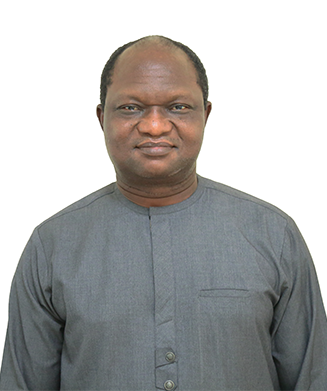
Henry Okodua
Henry Okodua, Senior Scientist
Department of Capacity and Deployment

Henry holds a PhD in economics degree from Covenant University, Nigeria and has been researching on African economic and social science issues since September 2015. Henry has strong writing and critical thinking skills, and a great passion for conducting comprehensive research, data analysis, and collaborative engagements in the pursuit of scientific solutions to real economic problems of society. His vast experience in conducting impactful research spans from the extensive use of applied general equilibrium analysis for macroeconomic policy modeling, to strong research skills in econometrics analysis.
Before joining AKADEMIYA2063, Henry has worked for many years as Senior Lecturer at Covenant University, Nigeria since 2004, and Visiting Lecturer at the Emerald Energy Institute, University of Port Harcourt, Port-Harcourt, Nigeria, since 2019 where he facilitates a postgraduate course on Advanced Marketing Analysis. He has also been an Associate Research Fellow in the Resource and Environmental Policy Research Centre, Environment for Development Nigeria, University of Nigeria, Nsukka since 2019.
Henry is joining AKADEMIYA2063 as Senior Scientist.
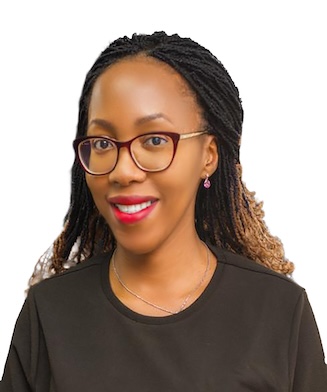
Aisha Musaazi Sebunya Nakitto
Dr Aisha Musaazi Sebunya Nakitto, Scientist
Department of Policy Innovation

Dr Aisha Musaazi Sebunya Nakitto is a Scientist in the Department of Policy Innovations at AKADEMIYA2063.
Responsible for leading the production of high-quality, evidence-based policy reports and briefing documents, she also supports the wider advocacy work within the department. She also leads all activities related to the Malabo Montpellier Panel Program.
Dr Nakitto holds a double doctorate in Nutritional Sciences from Justus Liebig University Giessen (Germany) and Makerere University (Uganda), as well as a Master's degree in Applied Human Nutrition from Makerere University.
She completed postdoctoral training on Climate, Land, Agriculture and Biodiversity (CLAB- Africa) at the University of Pretoria. Having also attended the University of Oxford and the University of Heidelberg, she was trained in Public Policy Economics and Teaching and Research in Public Health, respectively. In addition, she holds professional certifications in Project Management and Data Analytics.
Dr Nakitto has over 15 years of experience in: food and nutrition security, food systems, policy analysis, project and survey management, dietary assessment, diet-related non-communicable diseases, food compositional analysis and data analytics.
She is passionate about research and academia, as evidenced by her previous roles as a research consultant at AKADEMIYA2063 in the areas of food systems transformation, policy innovation and large-scale food fortification, as well as her previous positions as Dean of the Faculty of Health Sciences and Senior lecturer at the Victoria University (Uganda). She has also demonstrated her expertise by providing supervision for numerous postgraduate students’ dissertations and numerous international peer-reviewed publications. Dr. Nakitto has obtained various grants (such as DAAD and NIH) and is an editor in renowned scientific journals such as Frontiers of Endocrinology (Obesity section) and Frontiers of Young Minds (human health section).
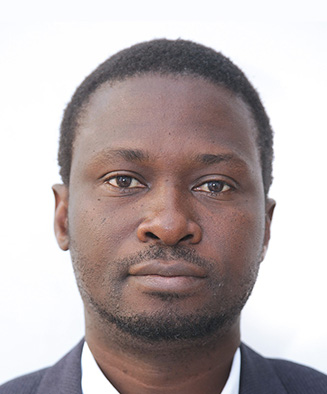
Fidele Eric Sessou
Fidele Eric Sessou, Scientist
Department of Operational Support

Fidele Eric Sessou is an agricultural economist with a strong analytical background. He holds a Ph.D. from the University of Kiel in Germany and a Master from the Université Catholique de Louvain-La-Neuve in Belgium. His professional experience includes positions at the International Institute of Tropical Agriculture (IITA) in Benin and the International Food Policy Research Institute (IFPRI) in Senegal, where he worked on impact assessment and econometric analysis to generate policy evidence.
Eric also collaborated with the Global Migration Data Analysis Center (GMDAC) under the International Organization for Migration (IOM/UN Migration), where he has conducted research to provide evidence-based policy insights for effective decision-making on irregular migration in West Africa. His research interests cover agricultural economics, impact evaluation, social protection, migration, poverty alleviation, and food and nutrition security. He has authored and co-authored publications in peer-reviewed journals. Eric also has experience in data collection, analysis, and project monitoring and evaluation. He is joining AKADEMIYA2063 as a Scientist.
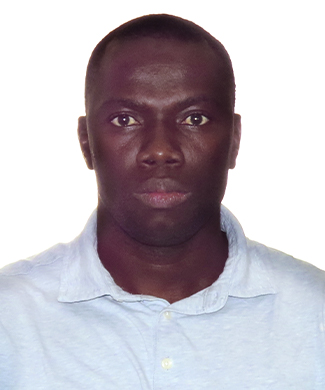
Jean Paul Latyr Faye
Jean Paul Latyr Faye, Machine Learning Specialist
Department of Data Management, Digital Products and Technology

Jean Paul has earned a Ph.D. in Physics and a master’s degree in computer science (Artificial Intelligence) from Sherbrooke University in Quebec, Canada.
He has been developing machine learning algorithms for a variety of applications, including agriculture, medicine, and finance.
In the field of physics, he is interested in Condensed Matter Physics where he investigates the mechanism of superconductivity, with the goal of creating new superconducting materials that can be used at room temperature.
Jean Paul Latyr Faye is a professor in the Physics Department at Cheikh Anta Diop University, Dakar, Senegal, where he teaches and conducts research in both physics and machine learning.
He has also been working with CMC-microsystems in Quebec, Canada as a quantum machine learning specialist, utilizing principles of quantum mechanics to design machine learning algorithms.
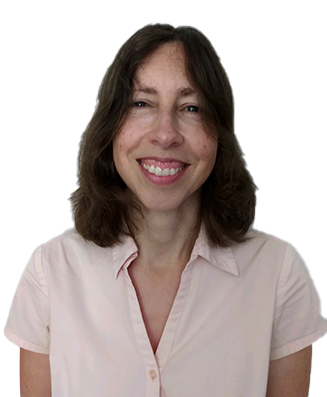
Julia
Collins
Senior Associate Scientist
Julia Collins, Senior Associate Scientist

Julia Collins is a Senior Associate Scientist with AKADEMIYA2063, based in Washington, DC. She supports a variety of ReSAKSS projects and AKADEMIYA2063 publications.
She previously worked at IFPRI as a Senior Research Analyst, contributing to support for National Agriculture Investment Plans and other ReSAKSS projects.
She earned her MS in Agricultural and Applied Economics from the University of Wisconsin-Madison in 2012 and holds a BA from Knox College in French and International Studies.
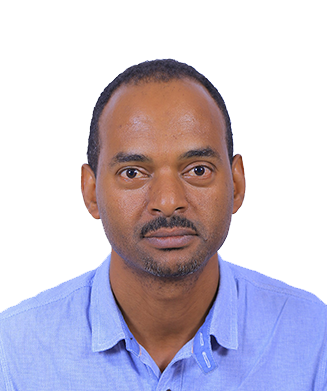
Wondwosen Tefera
Wondwosen Tefera, Senior Associate Scientist
Department of Knowledge Systems

Wondwosen Tefera holds BA degree in Economics and MSc in economic policy analysis from the Addis Ababa University. For the last eight and a half years, he has been working as a research officer at the International Food Policy Research Institute (IFPRI), Africa Division based in Addis Ababa, Ethiopia.
He has concrete experience in various research works and program M&E. He is engaged in collecting, verifying, tracking and reporting 30+ CAADP indicators based on the CAADP result framework and annually publish on the Annual Trend and Outlook Report (ATOR).
Prior to joining IFPRI, he took part on several consultancy jobs for various domestic and international organizations. Furthermore, he has worked on several surveys, as well as project and program evaluations in different capacities. He has strong skill and practical application experience on data analysis using Stata, SPSS, excel, ArcMap and also on survey data management using CSPro.
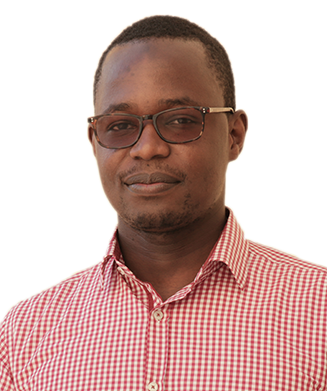
Khadim Dia
khadim Dia, Senior Associate Scientist
Department of Data Management, Digital Products and Technology

Khadim Dia is a Senior Associate Scientist at AKADEMIYA2063. He is an economic statistician engineer whose work entails collecting qualitative and quantitative data relevant and consistent with rigorous methods to guarantee quality of the results.
Prior to AKADEMIYA2063 Khadim worked at IFPRI - as Chief Statistician -where he mainly supported agricultural policies in Senegal within the PAPA project. The project included more than 20 surveys on different agricultural value chains and his responsibility ranged from the design of surveys to the production of statistics and the development of econometric models.
Khadim graduated as an engineer from the National School of Statistics and Economic Analysis in Senegal (ENSAE) in 2015. He also is recipient of a certification in Machine Learning from Stanford University. Prior to join IFPRI, he worked at the National Agency for Statistics and Demography of Senegal (ANSD).
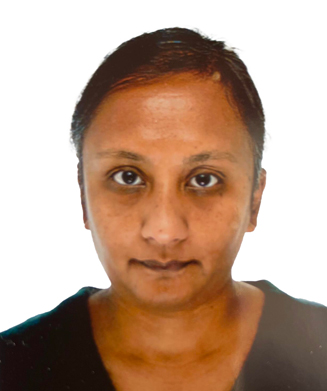
Meera Shah
Meera Shah, Senior Associate Scientist
Department of Policy Intelligence

Meera Shah is Senior Associate Scientist at AKADEMIYA2063. She brings extensive experience in research, project management, and communications within the climate and sustainability sectors. She joins from the Ban Ki-moon Centre for Global Citizens where she was the Programme Manager for Elevating Agricultural Adaptation, advocating for increased climate finance to build the resilience of smallholder farmers in Africa.
Meera is a Board Member for GanzAfrica and a Steering Group member for Initiatives for Land, Lives, and Peace. She also worked as a Research Associate at the Malabo Montpellier Panel, Imperial College London, concentrating on food security and agricultural policy in Africa. Meera has pertinent training in climate change and sustainability and has published numerous reports and academic contributions on policy innovations for food systems, climate finance, bioeconomy, and agriculture in Africa.
Meera was previously at E3G, a london-based climate policy think tank, and Initiatives for Land, Lives, and Peace, where she coordinated the Caux Dialogue on Land and Security in 2013 – 2017 and the North Rift Dialogue on Land and Security, in Baringo, Kenya. Meera was the Corporate Relations Manager at Save the Rhino International, and a Researcher and Team Administrator at AccountAbility. Between roles, she has completed several internships at think tanks and conservation organizations including Environmental Law Foundation, Environmental Investigation Agency, Chatham House, and Global Call for Climate Action. She holds a Masters in Environment and Development from the University of Edinburgh and a BSc in Accounting and Finance from the University of Warwick.
In her role as a Senior Research Associate, Meera will support the Department of Policy Intelligence in evaluating the impact of programs, reviewing and monitoring agricultural and climate change strategies and initiatives across Africa. Additionally, she will help the department in enhancing the quality of deliverables, ensuring timely completion, and supporting fundraising efforts.
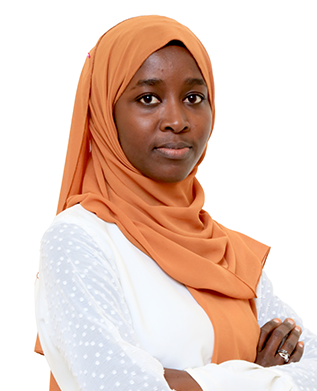
Aissatou Ndoye
Aissatou Ndoye, Associate Scientist
Department of Data Management, Digital Products and Technology

Aissatou NDOYE is an Associate Research Scientist at AKADEMIYA2063 in the Department of Data Management, Digital Products and Technology. She has a background in Software Engineering and in Machine Learning.
Prior to joining AKADEMIYA2063, she worked at Paris-Est Creteil University laboratory (LACL) as an intern in Embedded Systems where she contributed to the development of the embedded software of the nanosatellite OGM-SA and the modeling. After that, she worked as a Machine Learning Teaching Assistant in the African Masters of Machine Intelligence at AIMS Senegal.
She has a focus on Computer Vision and Speech Recognition and is passionate about solving problems that impact our society.
Aissatou holds a Bachelor’s degree in Information Systems from Gaston Berger University of Saint-Louis (Senegal) and a Master’s degree in Machine Learning from the African Masters of Machine Intelligence at AIMS (Rwanda).
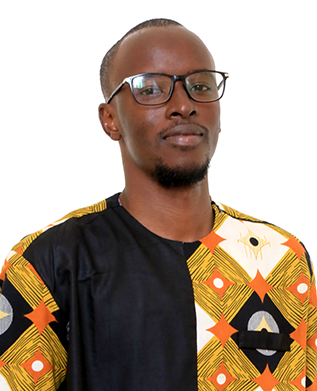
Mansour Dia
Mansour Dia, Associate Scientist
Department of Data Management, Digital Products and Technology

Mansour DIA, Associate Research Scientist (Machine Learning), has joined the AKADEMIYA2063 Data Management, Digital Products and Technology team based in Dakar, Senegal. His work involves research, design, implementation, optimization, and deployment of machine learning models combined with remote sensing products to solve business needs related to African agriculture.
Prior to joining AKADEMIYA 2063, Mansour had his first experience as an Artificial Intelligence engineer and worked on the orchestration of the value chain in digital agriculture for smallholder farmers in Senegal. He also worked in water access optimization using satellite imagery and machine learning in rural areas.
Mansour holds a master’s degree in Machine Intelligence from the African Institute for Mathematical Sciences (AIMS) and a Master in Electronics and Telecommunications Engineering from Gaston Berger University (UGB) in Saint Louis, Senegal, with a focus on wireless sensors network and their applications on water quality monitoring.
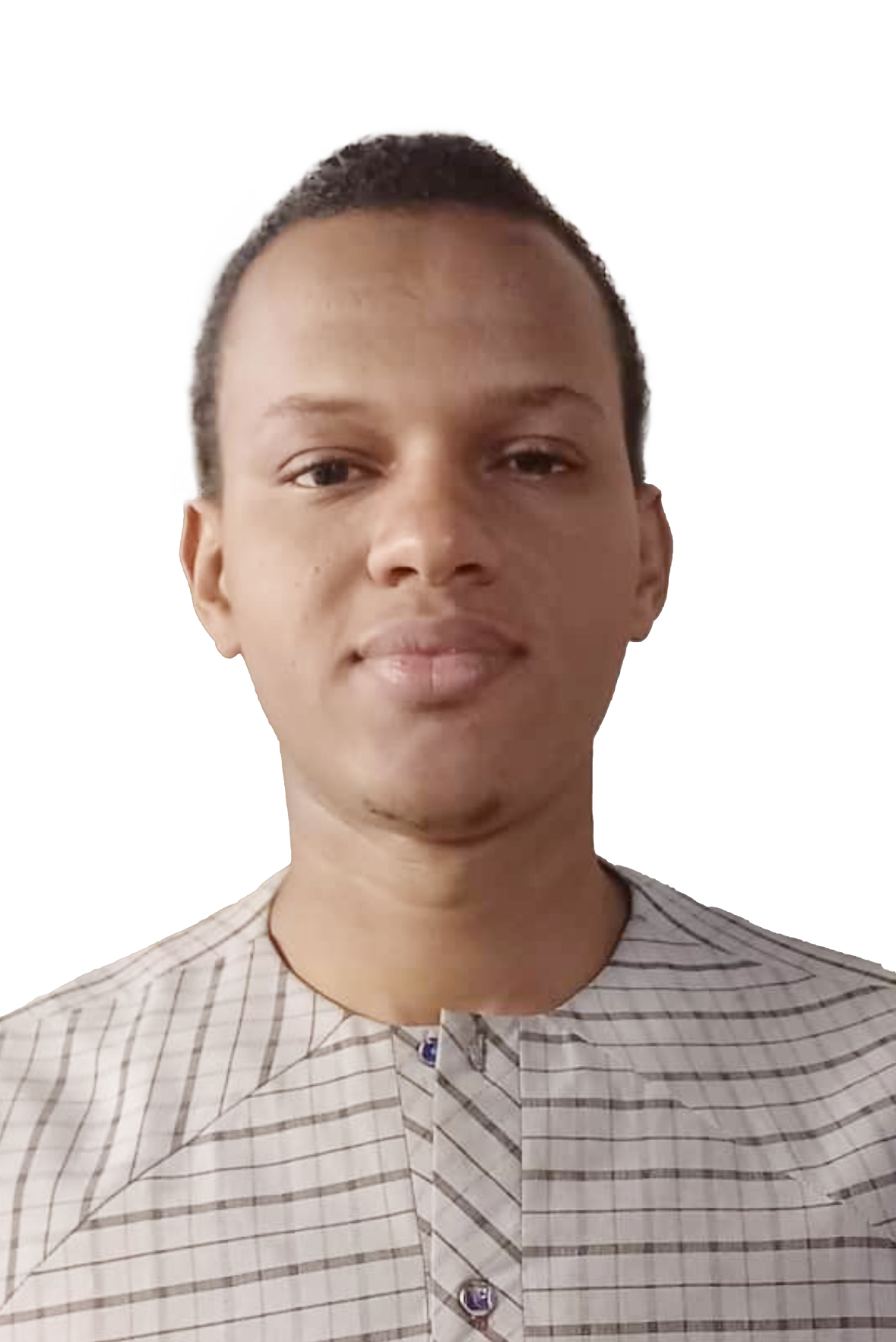
Mouhamadou Hady Diallo
Mouhamadou Hady Diallo, Associate Scientist
Department of Capacity and Deployment

Mouhamadou Hady DIALLO is a skilled statistician engineer who holds a master’s degree in mathematical modeling.
He has a strong interest in the application of mathematics to decision-making processes and has contributed to several data collection operations while working with various institutions such as ISRA (Senegalese institute for agricultural research), MAER (Ministry of Agriculture and Rural Development), and ANSD (National Agency for Statistics and Demography).
As a study manager at the Poverty and Living Condition Monitoring Center of the ANDS, he was one of the few professionals to participate in both phases of the Harmonized Survey on Living Conditions of Households, demonstrating his proficiency in conducting statistical surveys.
Hady’s passion for learning and curiosity have driven him to seek new challenges. He joins AKADEMIYA2063 as an Associate Research Scientist, where he intends to leverage his skills and experience to make a significant contribution to cutting-edge research. His love of learning keeps him motivated, and he strives to remain at the forefront of his field by continuously seeking to enhance his knowledge and skills.
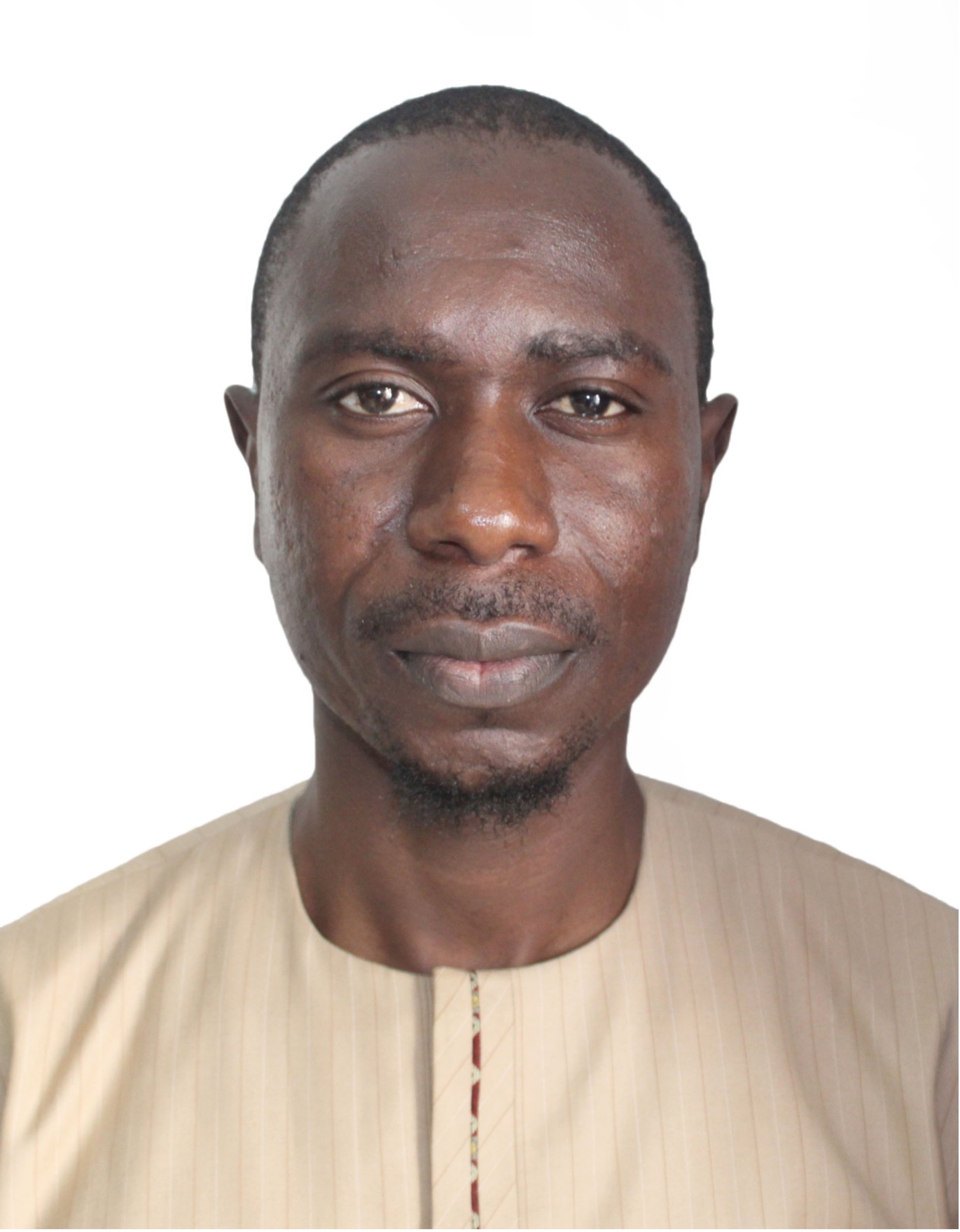
Sambane Yade
Sambane Yade, Associate Scientist
Department of Operational Support

Mr. Sambane Yade is an Associate Research Scientist at AKADEMIYA2063. Previously, Mr. Yade worked at the Direction of Forecasting and Economic Studies (DPEE) of the Ministry of Economy, Planning and Cooperation and at the Office of Economic Prospective (BPE) of the General Secretariat of Government of Senegal.
After successfully completing his university studies in Applied Mathematics and Social Sciences at Gaston Berger University in Saint-Louis, Senegal, Mr. Yade graduated as a statistician economist from the National School of Statistics and Applied Economics (ENSEA-Abidjan) in 2017 and thereafter from the National School of Statistics and Economic Analysis (ENSAE-Dakar) in 2019.
Mr. Yade has specialized since 2017 in data collection techniques, design of data collection applications, database management, development of indicators and dashboards, and production of reports for economic and social studies. Mr. Yade also has strong skills in data analysis, micro and macro-economic modeling, database management, project monitoring and evaluation, and statistical software.
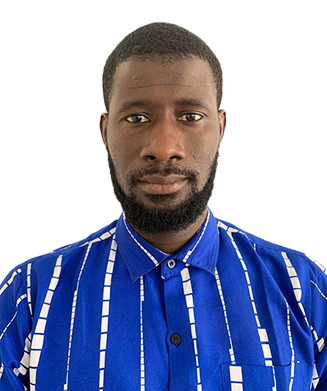
Moustapha Pene
Moustapha Pene, Associate Scientist
Department of Capacity and Deployment

Moustapha PENE is a research associate at AKADEMIYA2063 in Capacity and Deployment Department. He is a statistician and economist with a strong sense of responsibility to ensure the relevance and accuracy of his statistics.
Moustapha PENE began his professional career at AKADEMIYA2063 as a trainee research assistant where he mainly conducted a study on the impact of infrastructure on rural household income in Côte d'Ivoire and Niger using data from the 2018/2019 Harmonized Household Living Conditions Survey (EHCVM). This internship requiring quantitative skills for rigorous empirical research, with real-life involvement, drives Mr. PENE to love the world of research more. He has also worked at the Senegalese Company of Insurance.
Moustapha PENE holds a bachelor's degree in mathematics and computer science from Cheikh Anta DIOP University in Dakar, and a master's degree in statistics and economics from the National School of Statistic and Economic Analysis (ENSAE) Pierre NDIAYE in Dakar in 2023.
